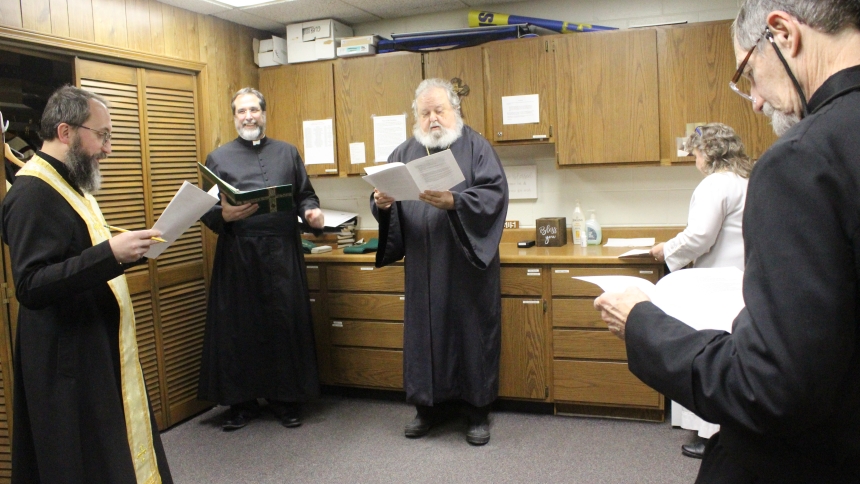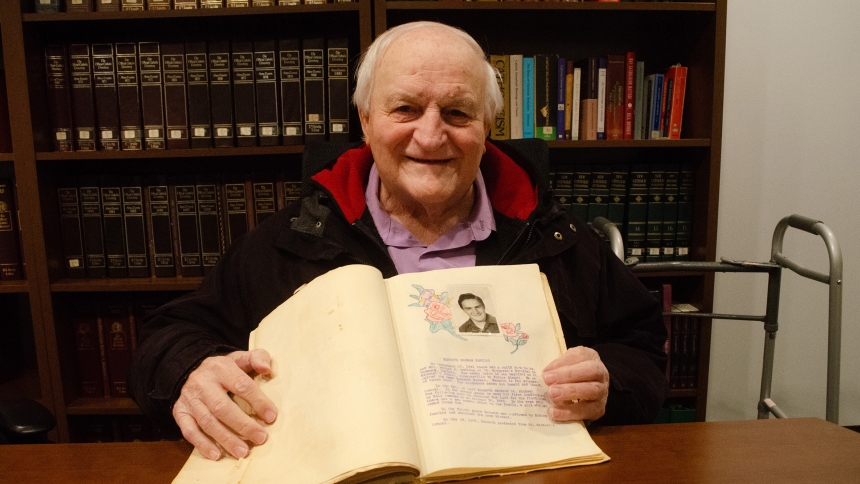
As published in the Northwest Indiana Catholic on January 14, 2017
This past Christmas season, I was deeply moved by the many gifts and cards I was blessed to receive. Hams, Wisconsin cheese, beer, clothes, books, and gifts of all kinds, coupled with heartfelt greetings and loving messages, led me to a deeper experience of love, gratitude and joy.
In the midst of the holiday swirl, we take the time and make the effort to tell the people who mean the most to us how much we love them and how important they are in our lives. This Christmas spirit is an extension of God’s presence and action in the world.
As we pack away the Christmas decorations, figure out what to do with all of our gifts, cease the joyous round of parties and holiday gatherings, and as the Church enters into Ordinary Time before the beginning of Lent, is there not always the lingering question in the back of our minds: how can we extend that great Christmas spirit throughout the year?
Do we need to wait until next December to express our deepest feelings, spend time with loved ones and offer gifts of time and service? Of course not, right? So what keeps us from living each day as if it was Christmas?
For me, that great generous spirit dissipates when I stop trusting in God’s love for me, when I feel that others have let me down or don’t love me and, more to it, when I allow feelings of inadequacy or not being loveable to dominate my heart and mind. When such darkness creeps into my vision, I close up, stop giving, cease reaching out; I curl up into my own little world where no one can get at me. Despite thousands of experiences of love, grace and acceptance from God and others, I still persist in distrust, fear and self-protection.
Before it is intellectual assent to creedal statements or a better grasp of the catechism, faith is a deep, abiding trust in God’s love and concern for us. Little children exemplify this beautiful gift, unconsciously assuming that their parents will always be there for them, feeding, nurturing, healing and loving them. As we grow older and move into wider relationships, this child-like trust experiences failures, disappointments and betrayals, and so we wonder if God is really there for us, especially in the hard and dark times of suffering, because the people we have known and trusted have sometimes let us down.
Does God love us unconditionally or is he even there at all?
I recently saw the film, “Jackie,” a moving portrayal of Jackie Kennedy struggling with the horrifying trauma of the assassination of her husband. In a memorable scene, she is sitting with an Irish priest, sharing her overwhelming sorrow and expressing doubts about God in light of her horrific tragedy.
As I remember it from the film, the priest responds, “Every night, after I have gotten into bed and turned off the light, I stare into the darkness and ask myself the question: “Is this all there is?”
We all ask that question at times, but then in the morning, we get up, make the coffee, care for our children and go off to work, trusting that it all means something and that God is there.”
In his monumental work, “Introduction to Christianity,” Cardinal Ratzinger, before he became pope as Benedict XVI, beautifully articulates the deepest human fear as the existential terror of being fundamentally and absolutely alone, unloved and disvalued. This dark fear of falling into nothingness, out of relationship, without love or hope, is the reality of death and hell, the power of evil that Jesus Christ has definitively transformed and conquered by embracing the darkness himself on the cross.
In light of this truth, the Resurrection, the Church, the sacraments, especially the Eucharist, the Scriptures and Christian fellowship together form the way that God reaches out and saves us from the abyss of despair and loneliness. As Psalm 23 reminds us, even though we walk in the valley of death, we need not fear because he Lord is powerfully with us, protecting and loving us.
The perennial appeal of Christmas perhaps lies in its fundamental assurance that God loves us, understands our human condition, even with its doubts and sins, and walks with us towards the radiant dawn of eternal life, the Kingdom of God where all imperfect human relationships will find absolute fulfillment and we will encounter the absolute and glorious love of God forever.
Saint Teresa of Avila called heaven “the tavern at the end of the world,” likening salvation to a convivial inn where all human divisions will fall away and everyone will feast and drink in the comm of Christ.
When we eat, drink or use our Christmas gifts, are we not reminded that we are loved, valued and held in the hearts of so many? Our Christian mission is to love and care for those who received few if any gifts this year - the hurt, the wounded, the lonely - so that each person can come to trust, believe in and love the God they cannot see.
When we give ourselves unstintingly to the great work of spreading Christ’s gentle mercy, the joyous Christmas spirit soars on.
+ Donald J. Hying



